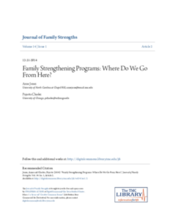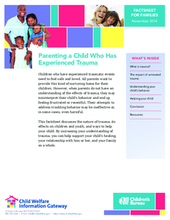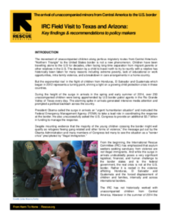Displaying 371 - 380 of 437
This paper calls for creative pathways of engagement that delineate places of belonging for and with Indigenous youth in care.
This article describes a group of Elders in the Lax kw’alaams community of British Columbia who provide support and mentorship to the Lax kw’alaams children in care.
In this article, Yudhijit Bhattacharjee discusses the critical brain development that happens in the first year of a baby’s life, and the impact that growing up in poverty has on that cognitive development.
This practice brief provides an overview of critical self-reflection questions that can be used, in a variety of ways, for training purposes for professionals in the US who work with grandparents raising grandchildren.
This article describes a kinship navigator program for children and kin caregivers involved in Child Protective Services in-home treatment cases.
This paper describes a study that examined the economic challenges faced by low-income, unmarried parents in the United States who participated in the Strong Couples - Strong Children (SC - SC) program, a federally funded initiative intended to help strengthen relationships of fragile families by providing relationship education programs.
This factsheet discusses the nature of trauma, its effects on children and youth, and ways to help your child.
This report, informed by a field study conducted by the International Rescue Committee, provides a summary of findings and presents recommendations aimed at helping policy makers to improve the current and future response to the arrival of unaccompanied children from Central America to the United States.
This article assesses the evidence-based programs that are most likely to improve key health and well-being outcomes for teenage mothers in the United States and yields a list that reflects the best evidence for efficacy and effectiveness.
This issue of the US-based journal Future of Children, entitled ‘Helping Parents, Helping Children: Two-Generation Mechanisms,’ reviews intervention programs for children and families of low socioeconomic status and on the mechanisms of child development that those intervention programs are trying to influence.



